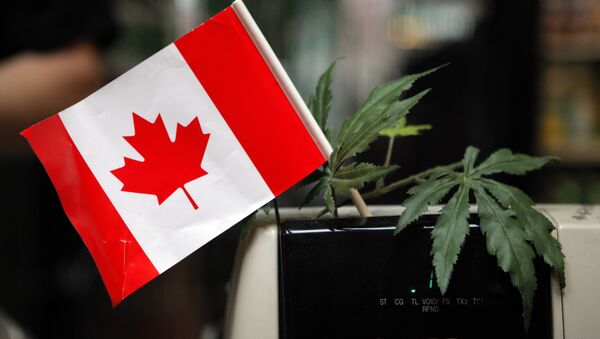After long promising on the campaign trail to legalize recreational marijuana, Canadian Prime Minister Justin Trudeau has introduced plans to do so.
Cannabis had already been legal in Canada for limited medical use since 2001. The Trudeau government is proposing allowing for the legal trade of the drug for recreational use as well from the age of 18.
UK gov should take a leaf out of Canada’s book & get a grip on the cannabis trade. Let's drive out criminality & restrict sales to over-18s
— Nick Clegg (@nick_clegg) April 13, 2017
A federal government task force, which has been investigating the issue since being set up in 2016, investigated other part of the world where the sale of cannabis is legal, including the US states of Colorado and Washington, as well as Uruguay.
It has made a series of recommendations to the government, including that citizens should be able to carry up to 30 grams of cannabis.
The news has been welcomed by many legalization campaigners who argue that prohibition of marijuana does not deter users, but funnels money to criminals, and results in too many Canadians ending up with criminal records for possessing small amounts of pot.
@KirkTousaw This is what serious crime fighting is all about!
— Wendell (@Wendellb48) April 10, 2017
The Canadian Association of Chiefs of Police has asked the government to ensure legislation does not allow people to grow the drug at home, saying it would put too much of a burden on law enforcement officials. The federal government taskforce has suggested setting the limit at four plants per home.
The prime minister himself hit the headlines for marijuana use when he admitted to smoking the drug while an MP in 2013. Trudeau made light of the issue when challenged about the misdemeanour on Canadian TV.
However, some Canadian doctors have expressed concerns that the prime minister's legalization plans may trivialize marijuana.
The Canadian Medical Association, the Canadian Psychiatric Association, and Canadian Paediatric Society have warned that chronic smokers under the age of 25 could be at risk of serious long-term ill health.
"We're saying, 'please keep the public-health focus front of mind as this legislation is unrolled'. Lots of people think this is harmless," Gail Beck, the clinical director of youth psychiatry at The Royal — a psychiatric hospital in Ottawa — told the Canadian Globe And Mail newspaper.
The Canadian government will continue to consult on legalization proposals, but plans to make cannabis legally available across the country before July 1, 2018.


